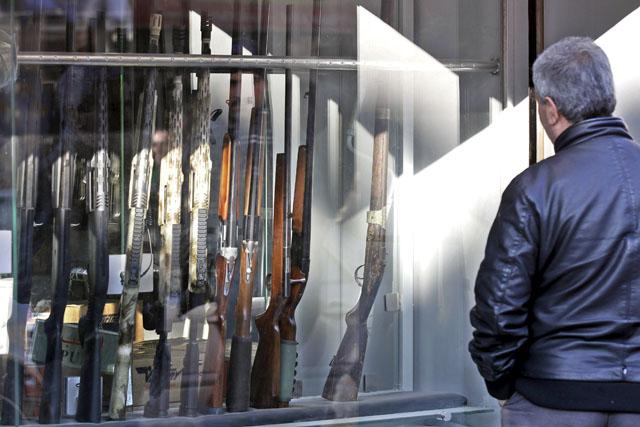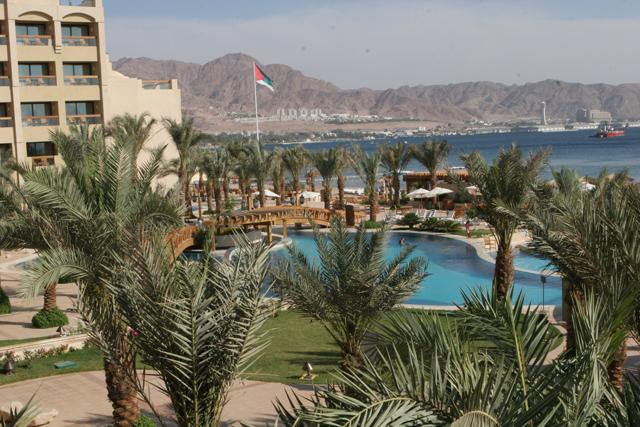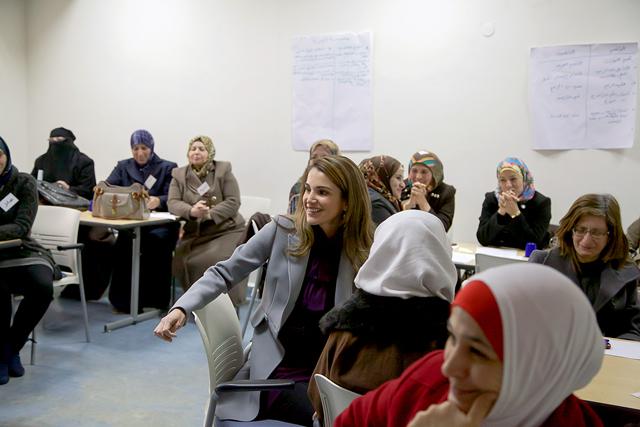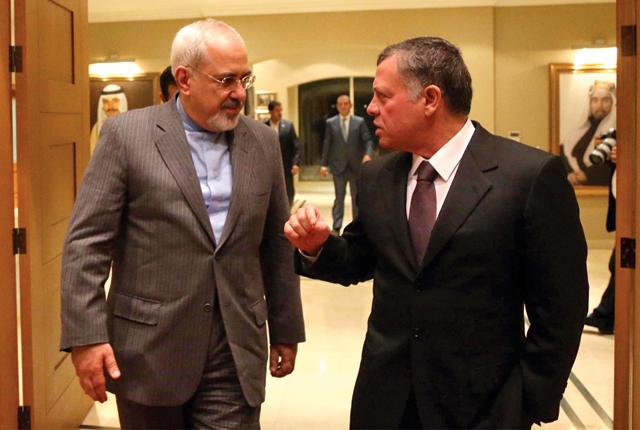AMMAN — Firearm prices in Jordan have soared tenfold since the war in neighbouring Syria erupted in 2011, but more people than ever are buying guns for protection against a possible spillover of the violence.
The number of licensed weapons stands at 120,000 but there are more than one million unlicensed guns in the Kingdom of seven million people, according to Interior Ministry estimates.
A study by the Jordanian Society for Political Sciences indicates that 25 per cent of Jordanians own guns, legally and illegally.
“The conflict in Syria makes people feel unsafe. They do not know what is coming in the future,” Sari Nasser, social sciences professor at the University of Jordan, told AFP.
“Jordanians buy guns to protect themselves because they think that security services are incapable of meeting their expectations.”
The war has taken a toll on the Kingdom, which is home to more than 500,000 Syrian refugees, most of them in the north, where frustrated Jordanians say they have become almost a minority.
Some have repeatedly complained that the refugees are burdening the country’s scarce resources and competing with them for jobs, while others say they fear the rise of Islamist power in Syria.
“Since violence started in Syria three years ago, demand for weapons has become very high,” Abu Samaan told AFP at his gun shop in downtown Amman.
“People are scared and they want to protect their lives and property,” said the 68-year-old, clad in an olive camouflage uniform.
The gun dealer, who has been in the business since the late 1960s, added that “customers are mainly looking for automatic weapons”.
Prices of some weapons have rocketed tenfold, with a Belgian-made M9 Browning pistol leaping from JD200 to more than JD1,800.
Similarly, the price of a Spanish-made Star M9 pistol went up from JD200 to JD2,000, and an Italian-made M7 Beretta pistol from JD120 to JD1,000.
“Very high demand, particularly for automatic weapons, which have become almost scarce in the market, has led to a sharp increase in prices of weapons in general,” said Abu Samaan.
With tidy profits to be made, smuggling has become big business, as has the illegal sale of weapons.
“There are 95 licensed gun shops in Jordan, but it is difficult to determine the number of other arms dealers, particularly with the current high level of smuggling,” a security source told AFP.
In the view of Rasmi Abdullah, a 47-year-old hunter, the Syrian conflict is the main factor driving Jordanians to buy weapons.
“The war has seriously affected people. Fearing violence will reach Jordan, they feel the need to buy guns for self defence,” said Abdullah as he visited Abu Samaan’s shop to stock up with ammunition — which he found had doubled in price.
Smuggled Turkish-made pump-action shotguns and tactical M7 pistols are favoured because of their relative cheapness, he said.
Shotguns, for example, go for JD600, while the price of an AK-47 automatic rifle has soared from JD200 two years ago to more than JD3,000 now.
Last month, the border guards said that arms smuggling has increased between Jordan and Syria by 300 per cent, adding that they have foiled hundreds of trafficking attempts, while the State Security Court is examining several related cases.
Concerned at the rapid weaponisation of the Kingdom, the government has banned the issuing of licences and the renewal of permits to carry firearms. It has also stopped giving permits for the opening of new gun shops.
But this has not stopped a thriving trade via Facebook, where thousands of people are trying to sell and buy weapons on a firearms classifieds site.
“The Syrian crisis has created new and different kinds of burdens, including arms trafficking,” Government Spokesperson Mohammad Momani told AFP.
“But Jordan’s armed forces are capable of controlling the situation and the government is closely monitoring any illegal activities.”
Police on Saturday said they had swooped in on an illegal weapons-making operation in the northern city of Irbid and had made several arrests.
The authorities have also jailed dozens of men convicted of trying to enter Syria to fight alongside rebel forces.
“There are hundreds or maybe thousands of Muslim extremists fighting in Syria. Most of them are Jordanians, so whether they win or lose, people here want to be ready,” said fearful citizen Abu Omar, as he examined handguns at a shop in Amman.
“At the same time, it is good business for dealers,” he added.
The shop owner agreed.
“In the past, Jordanians bought guns to show off. Now they are buying guns left and right for protection,” he said.
“The high prices will not stop people from buying weapons as long as the situation in Syria remains dangerous and unpredictable.”



















